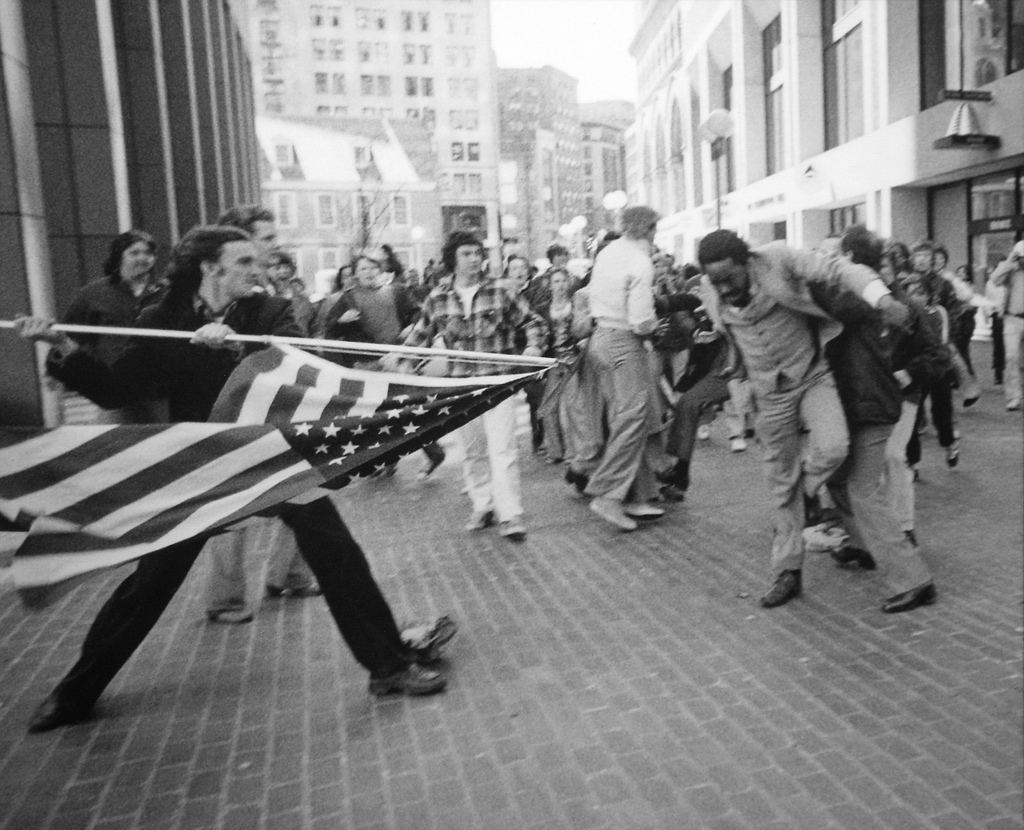BOSTON, Mass.—Three Boston city councilors stirred up controversy recently by voting “present” when Councilor Charles Yancey proposed a resolution to commemorate the sixtieth anniversary of Brown v. Board of Education, the landmark 1954 Supreme Court ruling that declared racial segregation in public schools to be unconstitutional.
While 10 of the 13 councilors voted in favor, Councilors Bill Linehan, Salvator LaMattina and Stephen Murphy declined to vote either for or against the resolution by voting present.
According to an earlier report by the Boston Globe, Linehan of South Boston and Murphy of Hyde Park said Yancey did not submit the resolution in time for them to review it before the meeting. Linehan stated that he voted present because he never read the resolution and was unsure of what it contained. Murphy was concerned with Brown v. Board’s part in forced busing in Boston.
“We’ve never recovered from it,” he said to the Boston Globe of forced busing. “We’ve spent tens of billions of dollars on the impact it made on thousands of lives … And Councilor Yancey wants to whitewash all that.”
In 1974, the United States District Court for the District of Massachusetts ruled that Boston Public Schools were unconstitutionally segregated and ordered public officials to balance the racial makeup of any school with a student enrollment more than 50 percent nonwhite. City officials responded by busing black students to predominately white schools, and vice versa. The integration ruling and busing plan met with fierce opposition, resulting in violence and boycotts throughout the city.
Ronald Formisano, author of “Boston Against Busing: Race, Class and Ethnicity in the 1960s and 1970s” and the William T. Byran Chair of American History at the University of Kentucky, said the recent City Council vote is not out of the ordinary.
“If you look at their political ancestry, it’s pretty clear that they’re from South Boston, Eastie – parts of the resistance during the 1970s,” he said of Councilors Linehan, LaMattina and Murphy during a phone interview with SPARE CHANGE NEWS. “It’s not terribly surprising.”
According to Formisano, the problem was not the decision to integrate schools but the way the way City officials implemented it.
“That part of time for the City of Boston was a very shameful period,” said Councilor Yancey. “I thank God it’s behind us.”
Yancey is confident that the vast majority of Boston residents do not believe in separate but equal education. While he acknowledged Boston schools still face economic disparity compared with schools in the suburbs, he feels the City as a whole supports the premise of Brown v. Board of Education.
“I’m sure the three who voted present regret not voting for it,” said Yancey, “I think the City as a whole enthusiastically supports the principles of quality education for everyone.”
Councilors Linehan, LaMattina and Murphy declined to comment for this story.

Leave a Reply
You must be logged in to post a comment.